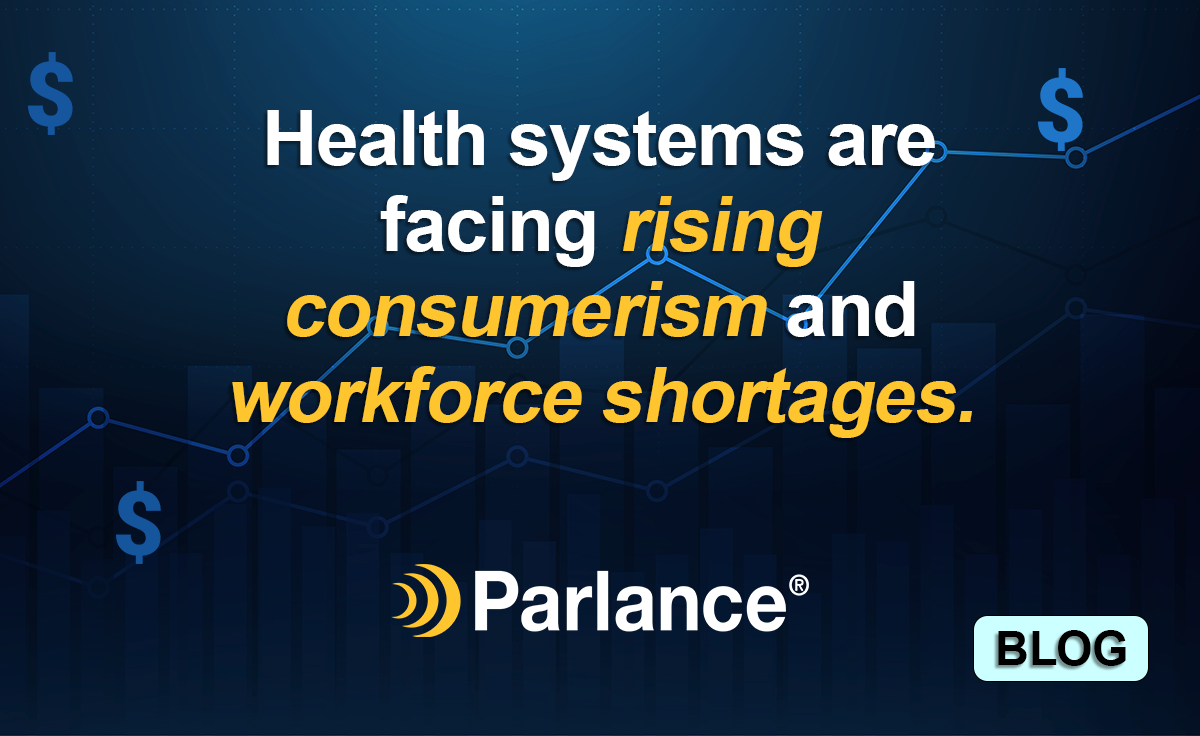Why CIOs Should Invest in Conversational AI to Save Money and Enhance Patient Access
In response to rising consumer expectations, increased costs, and workforce shortages, health system leaders have heavily invested in digital communication channels like patient portals and chatbots. 75% of providers have increased their digital and IT budgets since 2019. However, the voice channel has often been neglected as a part of digital transformation. 88% of healthcare appointments are booked over the phone, but scheduling takes an average of eight minutes, and patient calls are transferred 63% of the time. When contact centers can’t deliver ease and efficiency, patients get frustrated and have difficulty contacting their providers. To ensure all patients have easy access to care, health systems must modernize the voice channel with conversational AI-powered intelligent virtual assistants (IVAs).
The perfect opportunity for change:
In a recent survey, 88% of healthcare leaders said artificial intelligence held the biggest potential of any technology, but fewer than half had invested in it. With over 85% of providers expecting their digital and IT budgets to increase in 2024, health system executives should allocate a portion of funds to enhancing the voice channel with IVAs.
Why is improving the voice channel so important?
- Patient and caregiver preferences: Healthcare consumers often prefer the personal, human connection of the voice channel and the ease of navigation it offers.
- Accessibility for disabled individuals: Many disabled individuals’ conditions like visual or dexterity impairments, prevent them from using other communication channels – the voice channel is needed to contact their provider.
- Maintaining patient satisfaction amid other digital advancements: Although patient portals and chatbots are increasingly available, about 24% of patients had higher expectations based on their idea of what functionalities a patient portal should provide, and 22% had technical problems. When these communication channels cannot meet healthcare consumer needs, patients may look to the voice channel instead. Contact centers must be prepared to handle these calls with efficiency.
- High consumer expectations: When asked to name key factors to a five-star review, almost 58% of consumers cite great communication, and 60% name ease of scheduling. The voice channel is central to healthcare communication and appointment management. Optimizing phone system operations is critical for patient retention and a health system’s brand image
Voice channel improvements align with existing digital transformation objectives
Enhancing the voice channel strengthens technological initiatives put in place to automate routine processes. Two of the top three criteria healthcare leaders use to evaluate digital investments are “patient satisfaction” and “financial metrics/ROI”. Implementing speech-enabled technologies meets these criteria by enabling patients to use their voices to self-serve easily and by reducing hold times for callers who are waiting for a live representative. By mitigating large call volumes and allowing agents to work at the top of their skillset, operations are optimized and healthcare organizations save money.
About Parlance
Parlance delivers conversational AI as a managed service for leading health systems nationwide. We blend intelligent speech technologies, including automatic speech recognition (ASR) and natural language processing (NLP) to transform old-fashioned IVRs and automated attendants into easy-to-navigate speech-driven tools. Multibillion-dollar health systems and individual hospitals alike rely on Parlance to modernize call handling, enhance patient experiences, and significantly reduce operational costs with conversational AI.
By Kylie Perales



